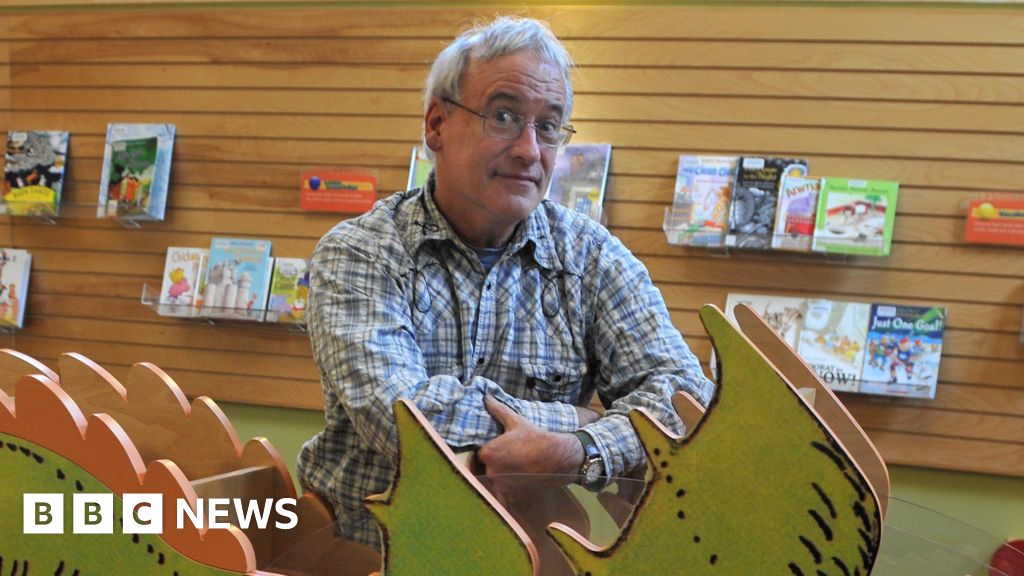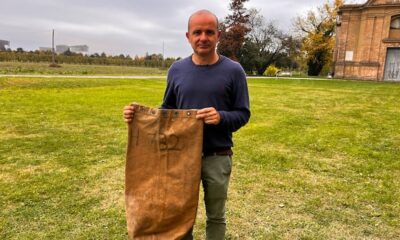Top Stories
Robert Munsch Approved for Assisted Dying Amid Health Struggles

URGENT UPDATE: Renowned children’s author Robert Munsch has been approved for medically assisted dying in Canada. The beloved writer, known for classics like The Paper Bag Princess and Love You Forever, revealed his decision amid ongoing health battles, including dementia and Parkinson’s disease.
In an interview with the New York Times Magazine, Munsch confirmed he has not set a date for his death but emphasized he would choose the moment when his ability to communicate deteriorates. “Then I’ll know,” he stated, underscoring the deeply personal nature of his decision.
Canada legalized assisted dying in 2016, initially for those with terminal illnesses. The law was expanded in 2021 to include individuals with serious, chronic conditions, even if not terminal. Munsch’s situation highlights the growing discourse around this complex issue, as he reflects on the pain of watching his brother suffer from Lou Gehrig’s disease (ALS). “They kept him alive through all these interventions. I thought, let him die,” Munsch shared, revealing the emotional weight of his experience.
The author, whose works have sold over 80 million copies worldwide and have been translated into at least 20 languages, received the Order of Canada in 1999 and a star on Canada’s Walk of Fame in 2009. In a statement, Scholastic, his publisher, expressed their support for Munsch, stating that his choice to speak publicly about assisted dying “reminds us, once again, why Robert’s work continues to touch many generations.”
Munsch’s daughter, Julie Munsch, indicated that her father’s decision was made five years ago. She praised the interview but clarified that it does not imply he is in immediate danger or unwell. “Nowhere does it say my dad isn’t doing well, nor that he’s going to die anytime soon,” she posted on Facebook.
According to Canadian law, individuals must meet several criteria to qualify for assisted dying, including having a serious and incurable illness and making a voluntary request without external pressure. This process requires confirmation from two independent doctors or nurse practitioners.
As of 2023, medically assisted dying accounted for 4.7% of all deaths in Canada, with 96% of the 15,300 cases deemed “reasonably foreseeable” due to severe medical conditions such as cancer.
Munsch’s decision has sparked intense discussions about the ethics and implications of assisted dying, particularly as more individuals seek control over their end-of-life choices.
The world awaits further developments as Munsch navigates this challenging chapter of his life, highlighting the profound human experience intertwined with the legal and moral landscape of assisted dying in Canada.
-

 World4 months ago
World4 months agoScientists Unearth Ancient Antarctic Ice to Unlock Climate Secrets
-

 Entertainment4 months ago
Entertainment4 months agoTrump and McCormick to Announce $70 Billion Energy Investments
-

 Lifestyle4 months ago
Lifestyle4 months agoTransLink Launches Food Truck Program to Boost Revenue in Vancouver
-

 Science4 months ago
Science4 months agoFour Astronauts Return to Earth After International Space Station Mission
-

 Technology2 months ago
Technology2 months agoApple Notes Enhances Functionality with Markdown Support in macOS 26
-

 Top Stories3 weeks ago
Top Stories3 weeks agoUrgent Update: Fatal Crash on Highway 99 Claims Life of Pitt Meadows Man
-

 Sports4 months ago
Sports4 months agoSearch Underway for Missing Hunter Amid Hokkaido Bear Emergency
-

 Politics3 months ago
Politics3 months agoUkrainian Tennis Star Elina Svitolina Faces Death Threats Online
-

 Technology4 months ago
Technology4 months agoFrosthaven Launches Early Access on July 31, 2025
-

 Politics4 months ago
Politics4 months agoCarney Engages First Nations Leaders at Development Law Summit
-

 Top Stories1 week ago
Top Stories1 week agoFamily Remembers Beverley Rowbotham 25 Years After Murder
-

 Entertainment4 months ago
Entertainment4 months agoCalgary Theatre Troupe Revives Magic at Winnipeg Fringe Festival



















